Peaceworks
Publications
Articles, publications, books, tools and multimedia features from the U.S. Institute of Peace provide the latest news, analysis, research findings, practitioner guides and reports, all related to the conflict zones and issues that are at the center of the Institute’s work to prevent and reduce violent conflict.
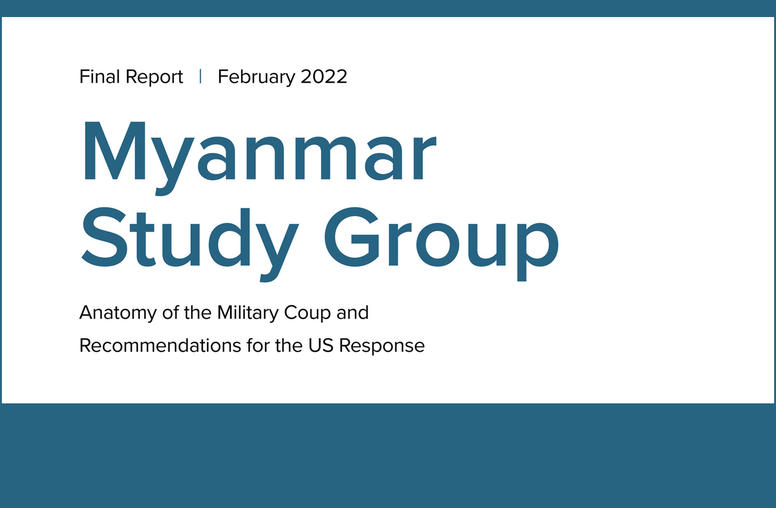
Myanmar Study Group: Final Report
In March 2021, the Myanmar Study Group was organized by the United States Institute of Peace (USIP) in response to the evolving conflict in Myanmar following the military coup of February 1, 2021. To support U.S. policy toward Myanmar, the Institute convened a study group of nine prominent experts on Myanmar and Asian affairs from April through September 2021. The study group held five discussions on topics of critical relevance to the crisis in Myanmar, supplemented by consultations with key stakeholders in the country and the region. Although convened by USIP, the views and recommendations contained in the report are solely those of the Myanmar Study Group, not USIP.

Billy Ford on Myanmar’s Resistance Movement
Despite the military junta’s imprisonment of ousted Myanmar leader Aung San Suu Kyi, USIP’s Billy Ford says there’s an opening for more inclusive narratives within the resistance movement — and if the movement can “unify around those [narratives] … it could come together and potentially defeat this regime.”
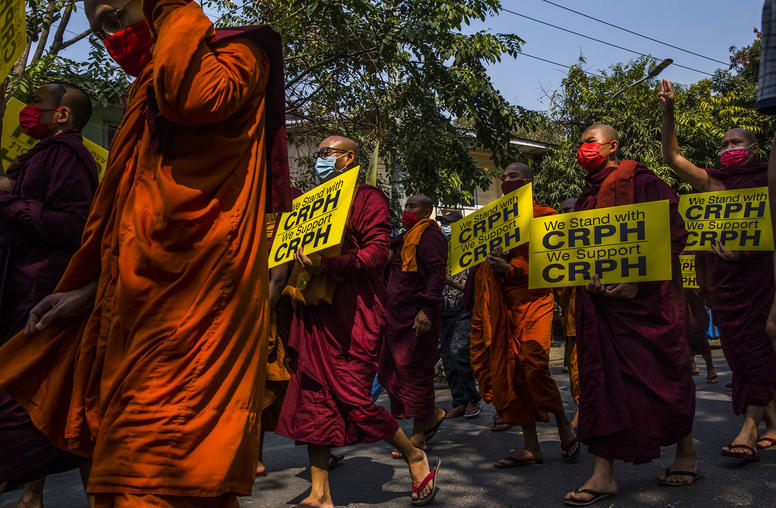
Myanmar Coup: Military Regime Seeks to Weaponize Religion
Ten months have passed since Myanmar’s military overthrew the country’s elected government, and by now it’s apparent that arrests, executions, torture and financial pressures will not pacify a population unwilling to be ruled by generals. So, the coup’s leader, Commander-in-Chief Min Aung Hlaing, is seeking to recast himself through military-controlled media. Rather than an autocrat who overturned the popular will, he portrays himself as the next in a long line of just and honorable Buddhist warrior-kings, monarchs who protected Buddhism from public apathy and external threats. The military is hoping that a barrage of religious propaganda can accomplish what force and violence have not.
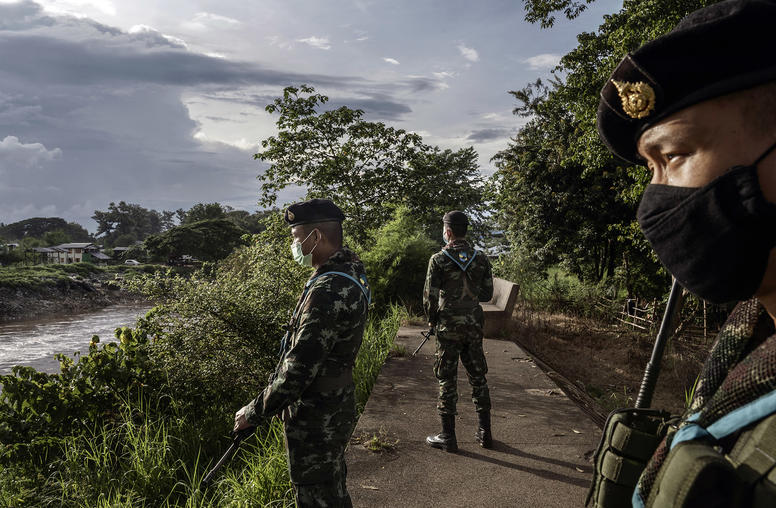
Three Priorities for U.S.-Thailand Cooperation in Myanmar
Secretary of State Antony Blinken was forced to cut short his first trip to Southeast Asia this week, scrapping plans to meet with Thai officials due to COVID-19 concerns. That talks with Thailand, specifically, were put on hold is an unfortunate development. Because while Blinken’s agenda for the trip was wide-ranging, the crisis in Myanmar was at the top of his list. And with a nearly 1500-mile border and close ties with Myanmar’s military junta, Thailand has the greatest stake in Myanmar’s future among ASEAN countries. As the world discusses a strategy for addressing the crisis in Myanmar, Thailand’s potential influence — especially with respect to humanitarian access — could prove consequential.
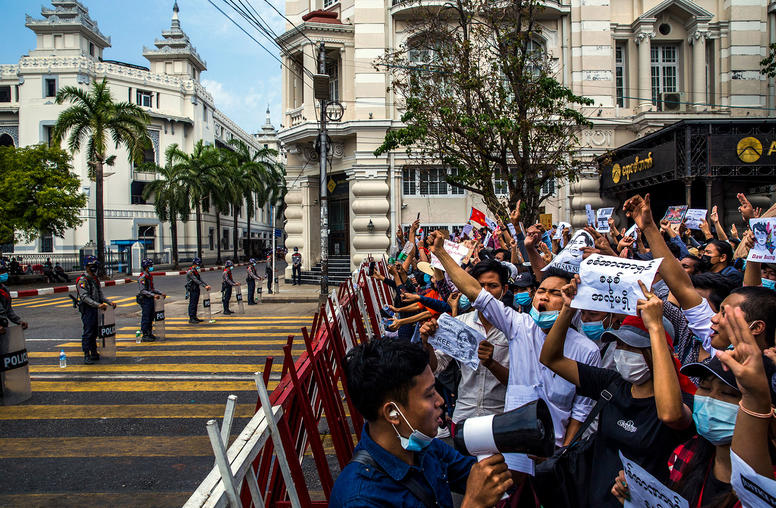
Myanmar Struggles to Reverse a Coup; Democracies Can Help
Few countries this year dramatize more powerfully the need for a global focus on strengthening democracy than Myanmar, now 10 months into a new chapter of military dictatorship and violence following its February 1 coup. Myanmar is a testament to the vulnerability of democracy when armed forces expect no repercussions for brutality and can rely on support from authoritarian governments which will arm, legitimize and finance them. As the United States and partners seek ways to boost democracy in this week’s White House summit, experts on Myanmar offered recommendations for policy.
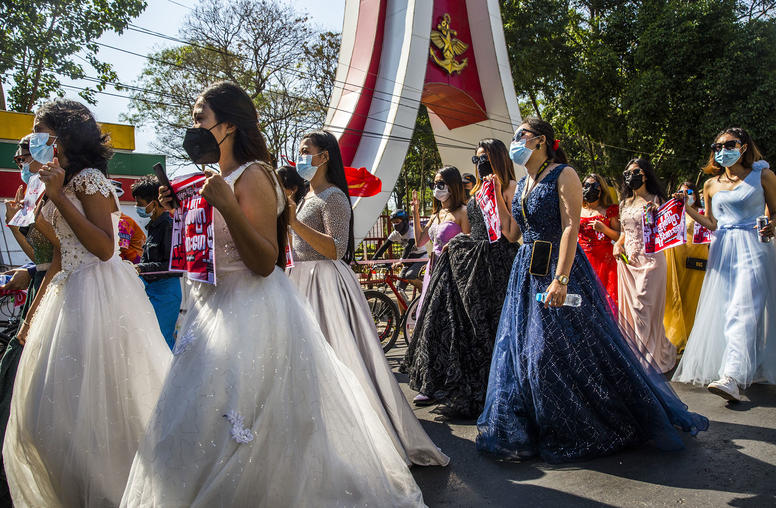
Myanmar’s Ongoing War Against Women
When the United Nations began its annual campaign to end violence against women 30 years ago, no one had Myanmar on their radar. But in recent years, Myanmar’s military has escalated its use of sexual and gender-based violence to terrorize women and girls — most infamously against ethnic minorities, notably the Rohingya. Confronted by these atrocities, the international community has issued widespread demands for accountability and justice that have yet to come to fruition.
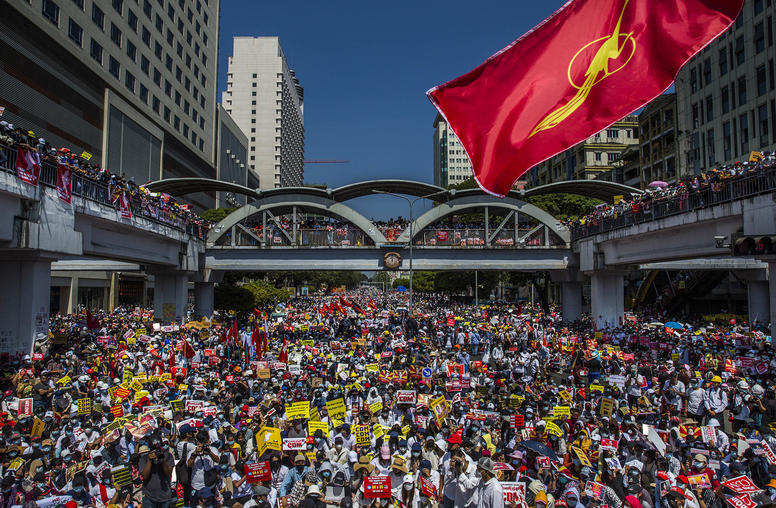
A New Myanmar Forum Aims to Unite Democratic Forces
Since the Myanmar military overthrew the country’s elected government early this year, the forces of resistance have set two immediate objectives: Prevent the generals from gaining military and administrative control of the country, and unify their own diverse and fractious democracy movement. The movement has made progress toward the first goal. On the second, a shared vision of the future is yet to emerge, as divergent stakeholders struggle to overcome historical grievances.
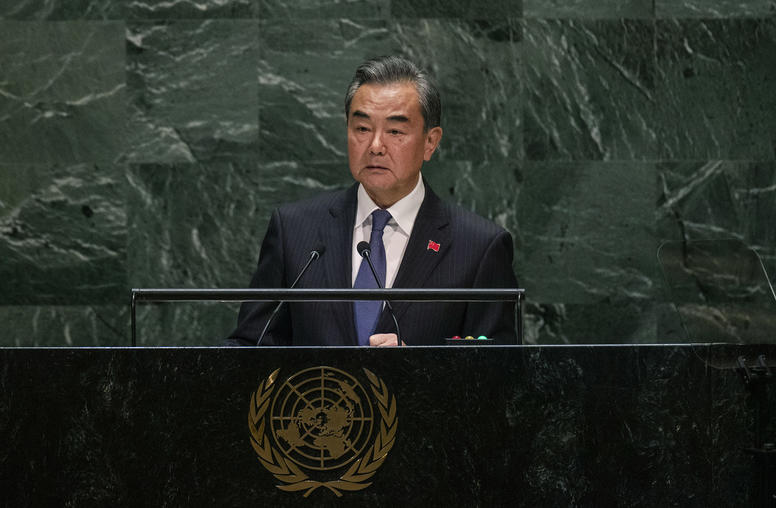
How China Responds to Instability on Its Periphery: Lessons from Afghanistan and Myanmar
China’s timid rhetoric and underwhelming actions vis-à-vis recent political upheaval in two different neighboring countries belie the image of a confident and assertive Beijing. What explains this apparent paradox? Despite the ruling Chinese Communist Party’s outward bravado, combined with unprecedented expansion of China’s regional and global activities and presence, Xi Jinping and his Politburo colleagues remain wary when it comes to taking risks abroad. Certainly, when China believes its interests are being directly attacked, such as in recent disputes with Australia and India, the state has opted for riskier, more aggressive moves. But where Beijing is not a direct party to the conflict, caution can override its willingness to take action that would show its hand or put China in a situation where it is not guaranteed to avoid a messy exit, à la the United States in Afghanistan.
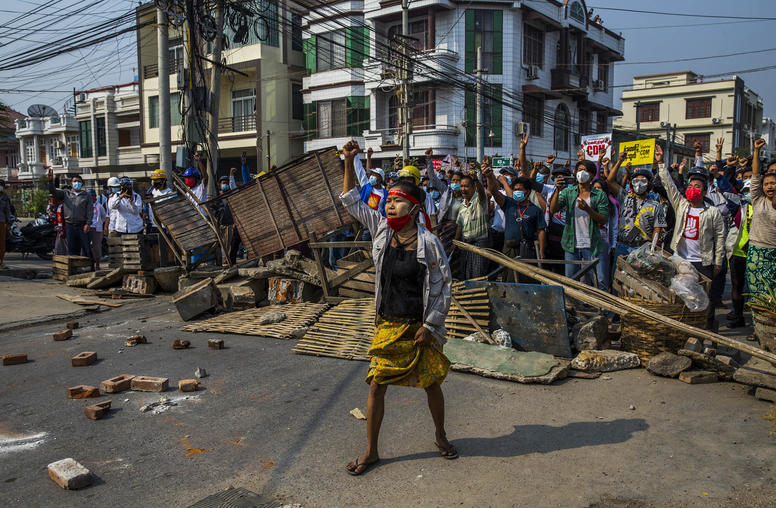
Myanmar’s Unity Government Meets with NSA Sullivan, Gains Further Traction
U.S. National Security Advisor Jake Sullivan recently met with representatives of Myanmar’s National Unity Government (NUG) — a shadow government representing the lawmakers elected by the people in the November 2020 election. The meeting boosted the NUG’s regional and international profile as an alternative to the brutal violence of the Burmese military, which has failed to gain control over the country since last February’s coup. But questions remain about whether the NUG and the disparate ethnic armed groups, political parties and civil society leaders that reject military rule can find common ground beyond a shared enemy.
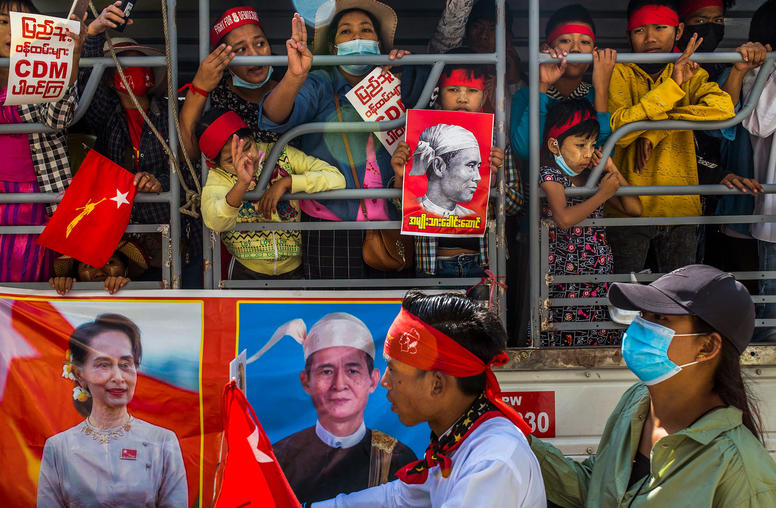
China and Myanmar’s Ousted Leaders: Mixed Signals, Cold Interests
Over the past two months, China has sought to resuscitate its relations with Myanmar’s National League for Democracy (NLD), the deposed party of Aung San Suu Kyi. Many analysts speculate the move reflects eroding confidence on Beijing’s part in the military junta’s staying power. But does it?